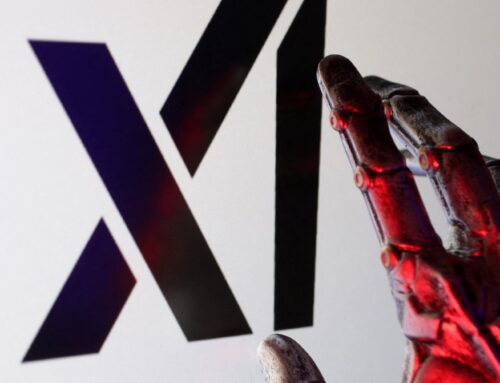Why 2025 could be the year of the ‘smart glasses’
January 4, 2025
Smart glasses have had a rocky ride. Google’s much-derided Glass wearable launched in 2013 saw some early adopters called ‘Glassholes’ before the specs were withdrawn from sale (twice, in fact).
But 2025 is (apparently) set to be the year that ‘smart glasses’ roar back, with companies including Google and Meta set to enter – or re-enter – the market.
Smart glasses refer to glasses with built-in computing capacity, which often pair with smartphones to deliver services such as alerts.
Current models offer wearers audio alerts (for instance of an incoming email), but a new generation will offer built-in screens. These will offer on-screen alerts, and will, over the longer term, allow users to use apps on screen, for instance for navigation prompts.
ADVERTISEMENT
In 2025, multiple pairs of ‘smart’ glasses will be launched with screens built in, designed for apps, virtual reality and showing people notifications.
AI is the ‘secret sauce’ enabling a new generation of smart glasses, with wearers talking to ChatGPT-style chatbots in real time.
Meta already partners with Ray-Ban for smart glasses, but plans to add built-in displays to the glasses in the second half of this year, according to the Financial Times.
AI will be crucial to the mix, with the tiny new display in the Ray-Ban glasses displaying either notifications such as messages from friends, or responses from a Meta AI chatbot.
Meta showed off its Orion prototype last year, which included advanced features such as being able to look at ingredients and ask the glasses for a recipe.
Orion, which reportedly costs $10,000 to make per pair, also allows users to control the glasses using gestures, and interact with other computer systems.
ADVERTISEMENT
Meta describes it as “not a research prototype”, and claims that Orion are “the most advanced pair of AR glasses ever made”.
“Orion bridges the physical and virtual worlds, putting people at the centre so they can be more present, connected and empowered in the world,” it has said.
The Ray-Ban smart glasses already offer features such as recording and sending voice messages – but a built-in screen will be a step towards ‘real’ smart glasses.
Launch month, Meta Platform announced the glasses would have AI video capability and real-time language translation functionality between English and Spanish, French or Italian.
Undeterred by the negative reaction to Google Glass just over a decade ago, Google is once again dipping its toes into smart glasses this year.
ADVERTISEMENT
Google announced a new operating system last year built for headsets and glasses called Android XR.
The first product, from Samsung and codenamed “Moohan”, will be available later this year.
The headsets will be able to run Android apps, and will include Google’s Gemini voice assistant.
Google says: “Glasses with Android XR will put the power of Gemini one tap away, providing helpful information right when you need it — like directions, translations or message summaries without reaching for your phone. It’s all within your line of sight, or directly in your ear.”
Chinese smartphone company Oppo showed off its smart glasses prototype in March 2024.
The glasses offer bright built-in displays and Oppo promises a “wearing experience that is close to that of a regular pair of glasses”.
ADVERTISEMENT
Like the other glasses due this year, users will interact via a ChatGPT-style chatbot using voice.
Other smaller companies such as Solos, Brilliant Labs and XReal are also developing their own AI-powered glasses.
Chinese tech giant Baidu launched glasses in November powered by its AI bot Ernie.
Reuters reported in Novmber that Amazon is developing smart glasses for delivery drivers and that Apple and Xiaomi are also working on new products.
Global technology market research firm Counterpoint says of the smart glass push: “Another promising development is the booming AR+AI smart glasses market, which is expected to gain momentum from late 2024 into 2025.” It adds it “expects significant expansion in the global AR smart glasses market” in the coming years.
Search
RECENT PRESS RELEASES
Related Post


